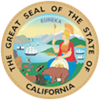
News Release
California Department of Food and Agriculture
Media Contacts: Steve Lyle, CDFA Public Affairs, (916) 654-0462,
USDA CHANGES CALIFORNIA’S BOVINE TUBERCULOSIS STATUS
Re-Classification affects testing of cattle and bison before out of state transport
SACRAMENTO – The U.S. Department of Agriculture’s Animal and Plant Health Inspection Service (APHIS) is reclassifying California’s status to modified accredited advanced for bovine tuberculosis.
Bovine tuberculosis does not threaten the quality and safety of milk and meat products produced in California. Because of the APHIS action, breeding cattle or bison leaving California will require a negative tuberculin test before they move. Spayed heifers and steers, cattle from TB-accredited free herds, cattle moving to packing plants, cattle or bison less than 6 months of age, and intact heifers moving directly to a feedlot can move to most states without testing.
Bovine tuberculosis is caused by Mycobacterium bovis, an organism very similar to the bacteria causing human tuberculosis. It can affect cattle, bison, deer, elk and other warm-blooded species, and can be fatal.
The disease can be transmitted to humans through direct contact with infected animals or consumption of raw milk or raw milk products. Bovine tuberculosis does not threaten the quality and safety of milk and meat products produced in California. Almost all milk sold in California is pasteurized, which destroys harmful organisms, including the tuberculosis bacteria. The state’s two raw milk dairies are regularly tested for tuberculosis. All cattle processed for meat are inspected for tuberculosis and rejected for consumption if they show signs of the disease.
APHIS had listed California as an accredited-free state for bovine tuberculosis. An epidemiological investigation of a tuberculosis-positive cow found through slaughter surveillance in December 2007 resulted in the confirmation of an affected dairy herd. As the investigation continued, two additional affected dairy herds were identified, both containing a single infected animal. These findings mean that California no longer meets the requirements for accredited-free status.
CDFA and USDA personnel continue efforts to investigate these cases of bovine tuberculosis, and veterinarians and animal health professionals from across the state and nation are helping with the effort. Since this bovine tuberculosis investigation began in December 2007, more than 145 herds and over 180,000 cattle have been tested, and seven infected cattle have been identified. Although the source of the infection has not been identified, the bacteria strain-type in one herd differs from that in the other two herds, and both are typical of those infecting dairy cattle in the Southwest US and Mexican origin cattle.
All cattle from two of the affected herds have been removed and the third herd is under movement controls and a testing program to remove infected cattle and prevent any spread of disease. California will be eligible to reapply for Free-status two years after the quarantine is released on the last affected herd.
The best way for cattle producers to prevent bovine tuberculosis is to maintain a closed herd or isolate and test purchased additions and cattle re-entering the herd, prevent contact with cattle of Mexican origin, arrange professional diagnostic workup of sick animals, maintain accurate records of animal identification and movements, and establish a tuberculosis testing policy for employees.

1220 N St., Ste. 214, Sacramento, CA 95814
916-654-0462, www.cdfa.ca.gov
